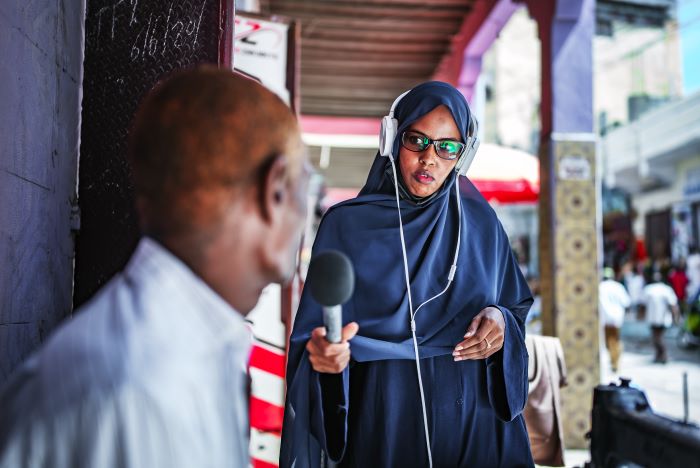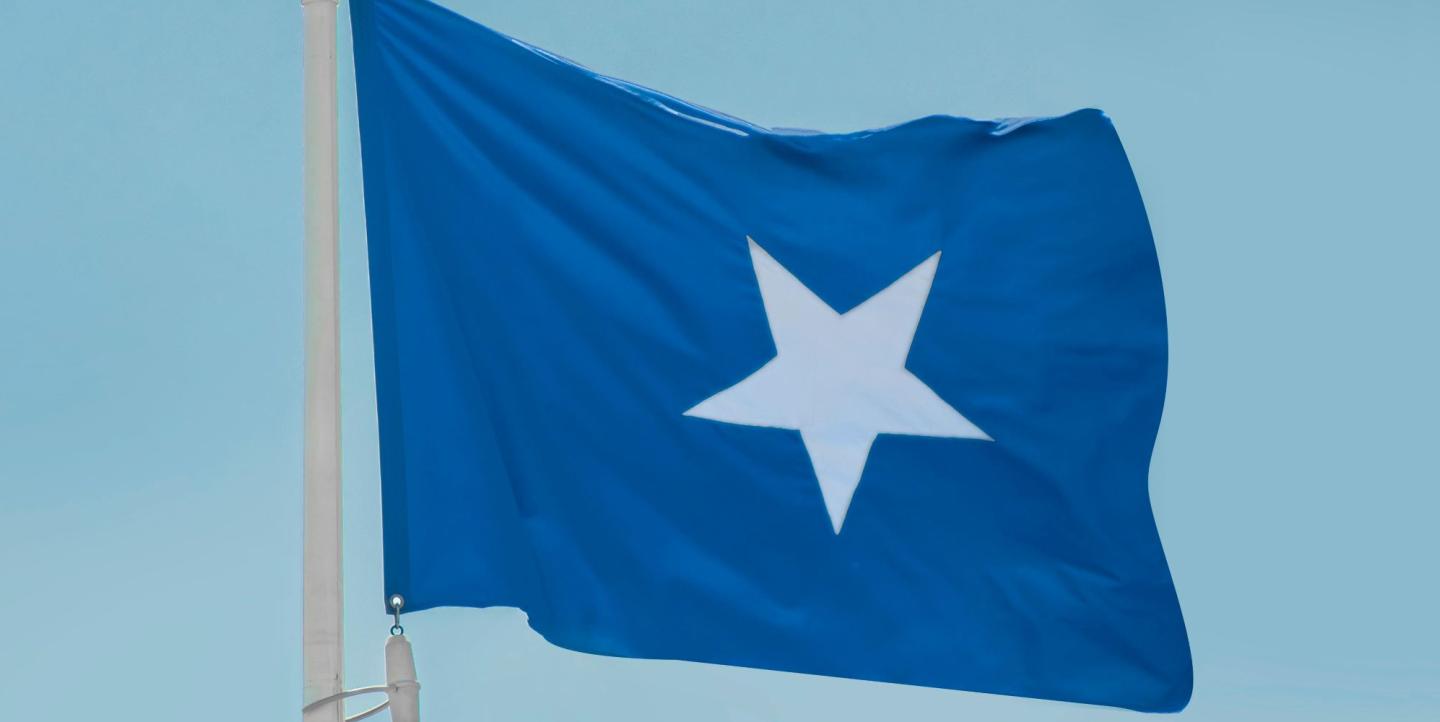Somalia is one of the world's most dangerous countries for journalists. In its highly conservative society, women largely are expected to stay at home and avoid public life.
The country's first all-women news outlet, Bilan Media, is bucking this norm, providing a safe working space for its journalists while empowering them to choose what they report on.
To learn more about this unique media project, I spoke with its co-founder, Mary Harper, Editor-in-Chief Hinda Abdi Mahmoud, and Shukri Abdi Mahmoud, the youngest journalist on the six-woman team. They discussed the inspiration behind Bilan Media, the challenges the outlet has faced, the team’s ambitions, and more.
The origin story
When British journalist Mary Harper traveled to Somalia as a young reporter in her 20s, she fell in love with the country instantly. Harper, who spent 30 years at the BBC reporting on Africa, has authored two books about Somalia.
Harper, alongside Robert Few, worked on UNDP’s Somali Women Media project, which created and supported Bilan. The project is fully funded by the EU through UNDP.
Supported by the United Nations Development Program, the primary inspiration for Bilan Media is to facilitate quality journalism delivered by skilled women journalists in Somalia, explained Harper. By publishing stories reported by women journalists, the outlet acts as a beacon of hope for other women in Somalia who wish to become journalists.
Empowering women's voices
Women in Somalia are often treated as second-class citizens. "Generally, women do not have a significant role in public life, and their voices are often ignored,” said Harper.
Bilan Media comes under regular attack and criticism, as it provides space for female journalists to share their ideas and turn them into reality. "It's incredibly difficult for them, but they are brave and determined not to stop," said Harper. Bilan’s journalists, for instance, are often told that their place is at home, cooking, cleaning, and raising children.
"The motivation behind choosing a career in journalism comes from growing up in an environment where women were denied the autonomy to make their own choices," said 24-year-old Shukri Abdi Mahmoud.
Shukri, having grown up in a conservative Somali family, has had to contend with negative perceptions around women in journalism: "My entry into this field surprised everyone, as I am the first girl in my family to work in journalism."
In 2018, she faced threats from a terrorist group due to her journalism. Shukri kept reporting, however, believing strongly in the importance of empowering women to take on roles in politics and their communities: "That is the message I want to convey to society.”
Editorial independence
The six women journalists working at Bilan come from across Somalia. They bring with them a wealth of media experience and a commitment to women's rights and journalistic integrity. They work in a secure environment, one that is exclusive to the team, with access restricted for men.
The team manages all aspects of story production – from choosing the topic and how to cover it, to filming, interviewing, and writing scripts – often using just their mobile phones. "They literally handle every part of the story from start to finish," said Harper.
Prioritizing security has provided the team safety to produce impactful stories that other journalists might not fully capture. “Our unique position as an all-female media team has allowed us to access places and stories that male reporters might find difficult to reach," said Hinda Abdi Mahmoud, the outlet's editor-in-chief.
The all-female team fosters a "sense of empowerment and solidarity," she continued: "We have created a supportive and collaborative environment, which has allowed us to be creative in our reporting."
Notably, the team has shed light on issues in the country such as women dealing with drug addiction and how albino people are treated. The Bilan team "is committed to breaking taboos and focusing on issues that have not been sufficiently addressed," said Hinda.

Crafting the story
Bilan Media holds weekly editorial meetings with Harper to discuss new story ideas and their execution. The journalists send their video work to Harper for review.
As the team has become more skilled with time, Harper has become less involved. "My goal is for this entire task to be handled solely by the team," she said.
In addition to the stories it produces for its own platform, Bilan Media also pitches articles to international outlets such as The Guardian, the BBC, and El País.
The team is committed to presenting a balanced view of Somalia, avoiding solely negative stories. "It's crucial that Somalia is represented accurately and fairly on the international stage, as it is one of those countries that suffers from numerous stereotypes," said Harper.
The value of having local journalists report stories for international media lies in their deep understanding of culture and place. "I’m fortunate to have started working at the BBC, where programs were primarily produced by people from Africa or those with strong connections like myself, aimed at an African audience who wanted stories from an African perspective,” said Harper. "It's not just about sending a journalist on a one-off assignment from the U.K. or the U.S. to cover the story.”
Internship programs
Two universities based in the capital city of Mogadishu specialize in journalism: the National University of Somalia and Mogadishu University. Journalism graduates from both institutions face significant challenges in securing job opportunities.
Bilan Media established an internship program to address this, for top journalism students and recent graduates. The interns are given the chance to work part-time for six months at Bilan, collaborating with the team on story production.
Hinda Abdi Mahmoud herself started as a reporter. Working at Bilan helped her hone skills in photography, editing, and storytelling techniques.
"Bilan is a fertile ground for developing my leadership skills,” she said. “The continuous training programs at Bilan have been crucial for maintaining my skills and staying current with industry standards.”
This article was originally published in IJNet Arabic.
Images courtesy of Bilan Media Team.

